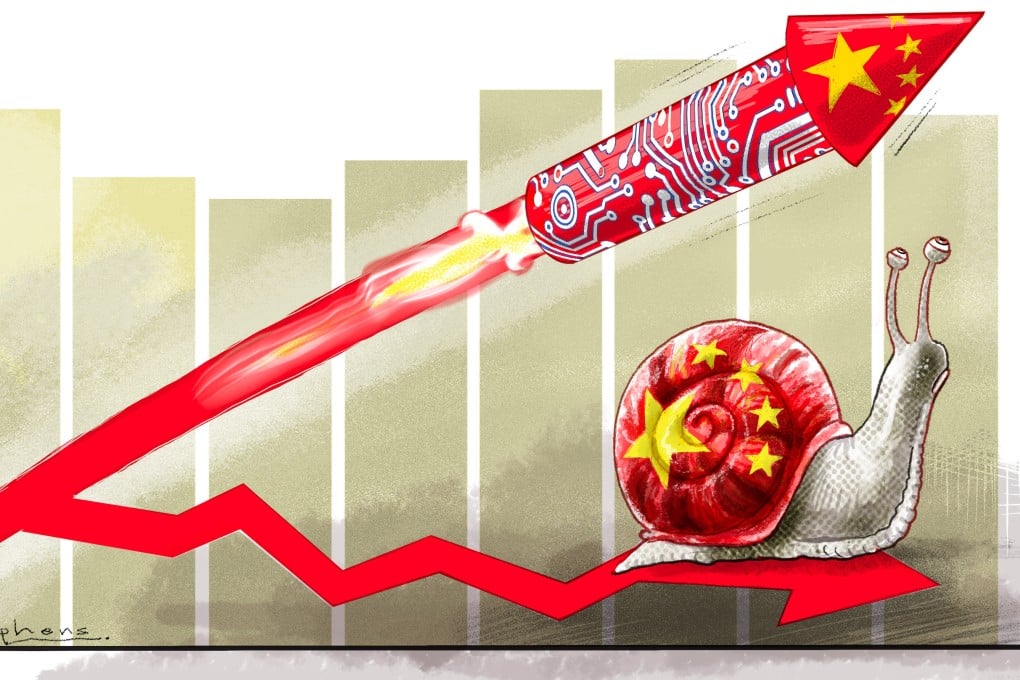Advertisement
Opinion | Is China rising or slowing down? The answer is it’s complicated
China is far from collapse but its gamble to anchor growth in hi-tech innovation won’t pay off unless it shores up its traditional economy
Reading Time:4 minutes
Why you can trust SCMP
4

Western observers often view China as either a rising superpower on the cusp of global dominance or a country on the brink of collapse. These contradictory takes amplify only one side of China’s economic trajectory: a tech boom alongside a growth slump.
Advertisement
This paradox can be attributed largely to the directives issued by President Xi Jinping to millions of Communist Party apparatchiks tasked with realising his ambitious vision.
Contrary to the perception of China as a command economy where national leaders deliver precise orders, the logic of what I call “directed improvisation” prevails. Central leaders signal their priorities while the country’s vast bureaucracy – comprising ministries and local governments – interprets and acts on these signals according to political incentives.
Xi has made it clear he intends his legacy to be a new economy focused on “high-quality development” and “new quality productive forces”. The old economy of polluting industries, infrastructure investment and real-estate speculation helped lift China from poverty to middle-income status, but Xi has distanced himself from it.
Advertisement
Chinese officials thus have little incentive to take bold steps to revive the old economy: success would do little to improve their standing and failure could end their careers. This helps to explain the central government’s lacklustre response to the ongoing real-estate slump. Had policymakers acted decisively right after the Covid-19 pandemic, they might have restored consumer confidence. By now, however, the economic slowdown has hit not just confidence but also incomes, as more people face lay-offs and pay cuts.

Advertisement
